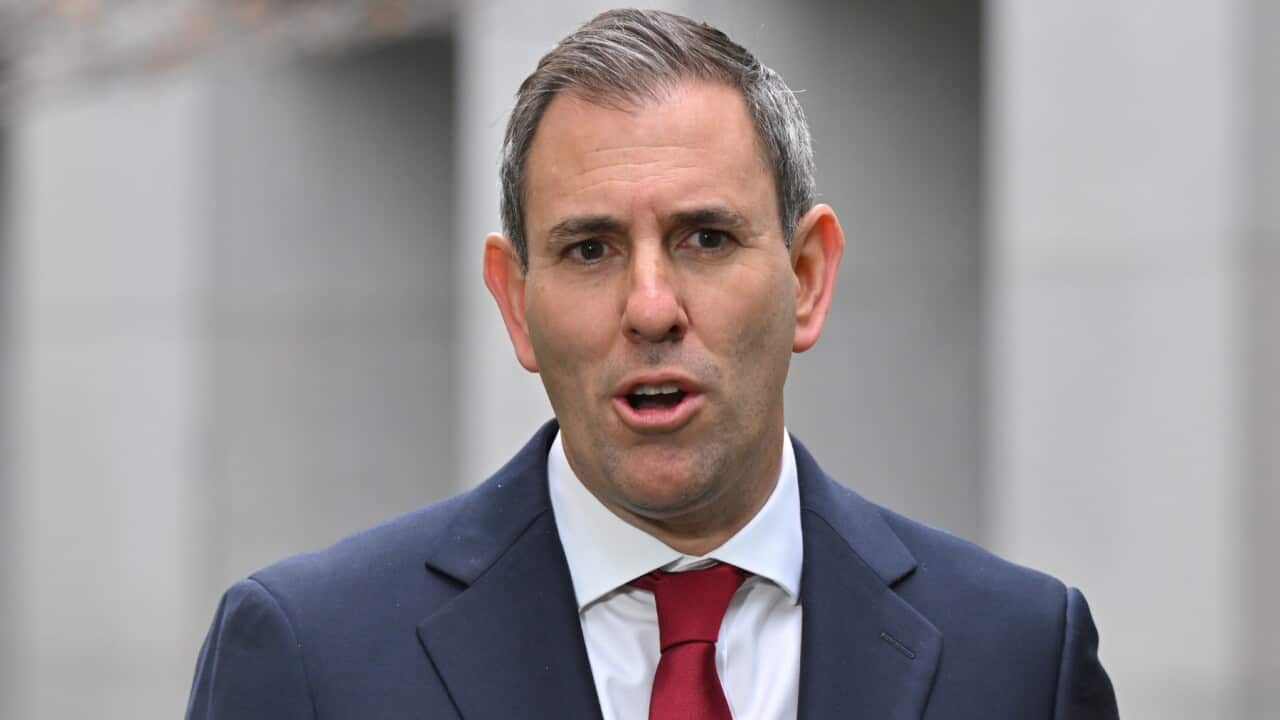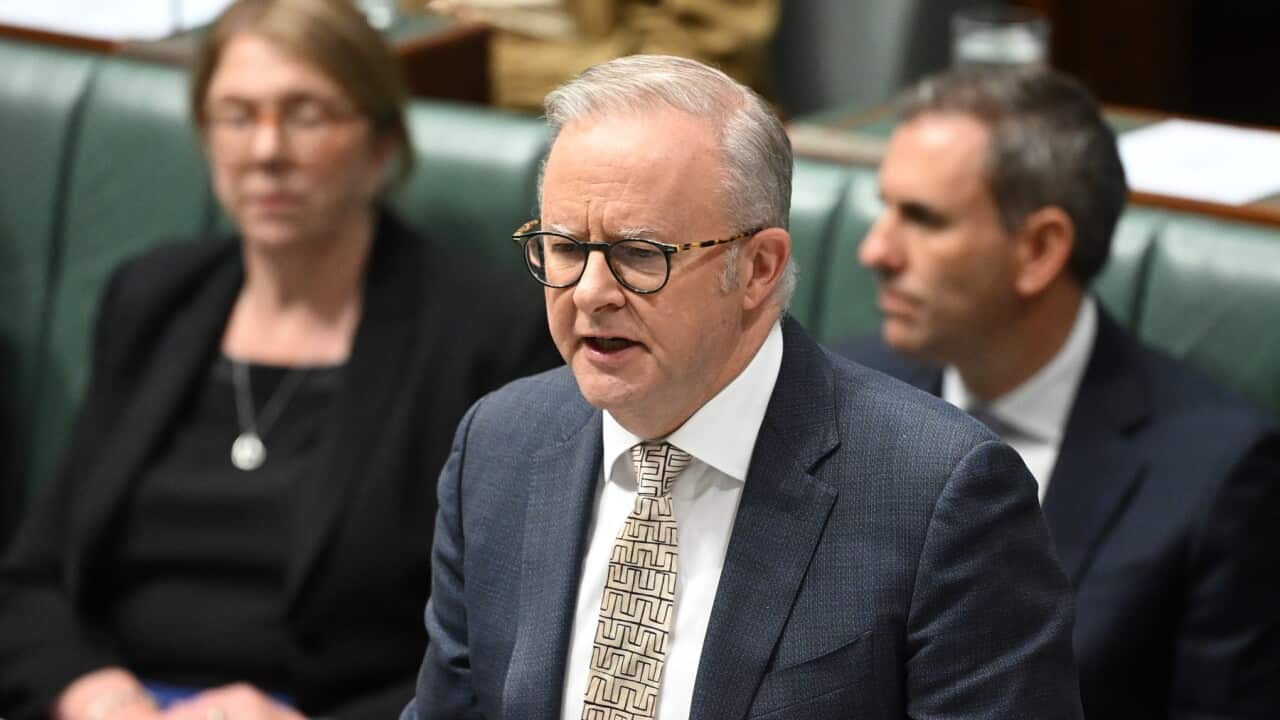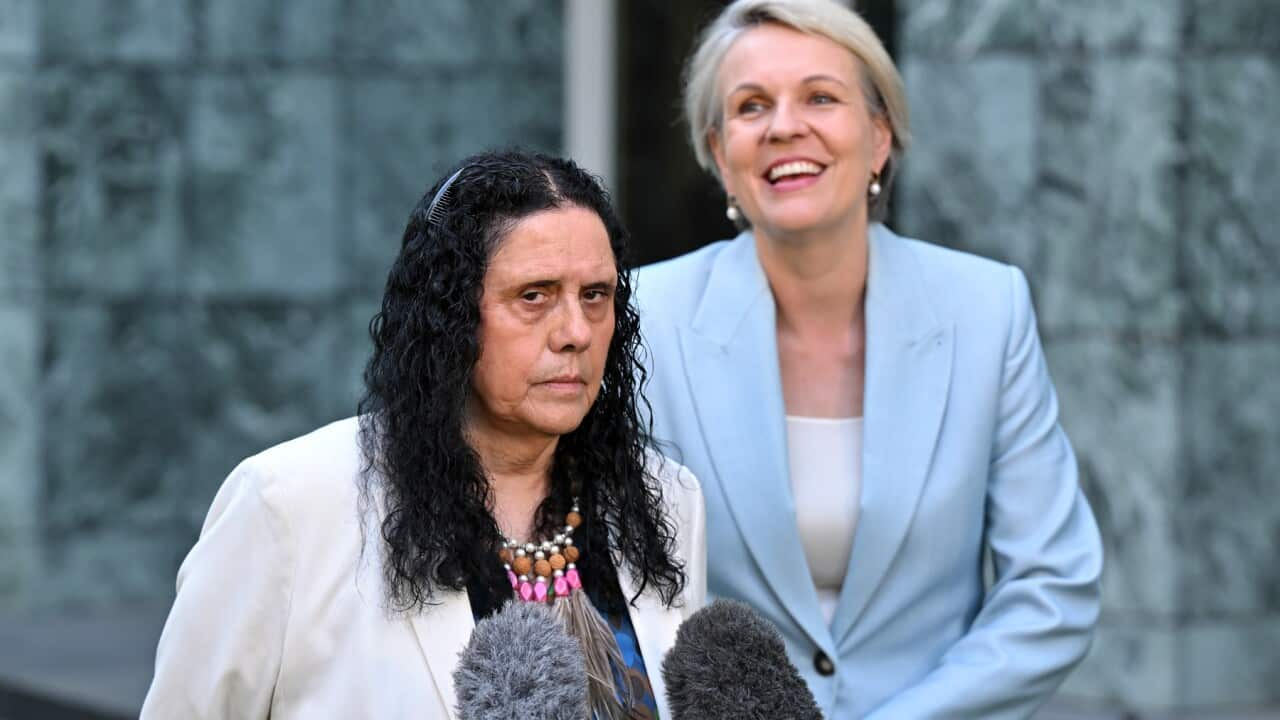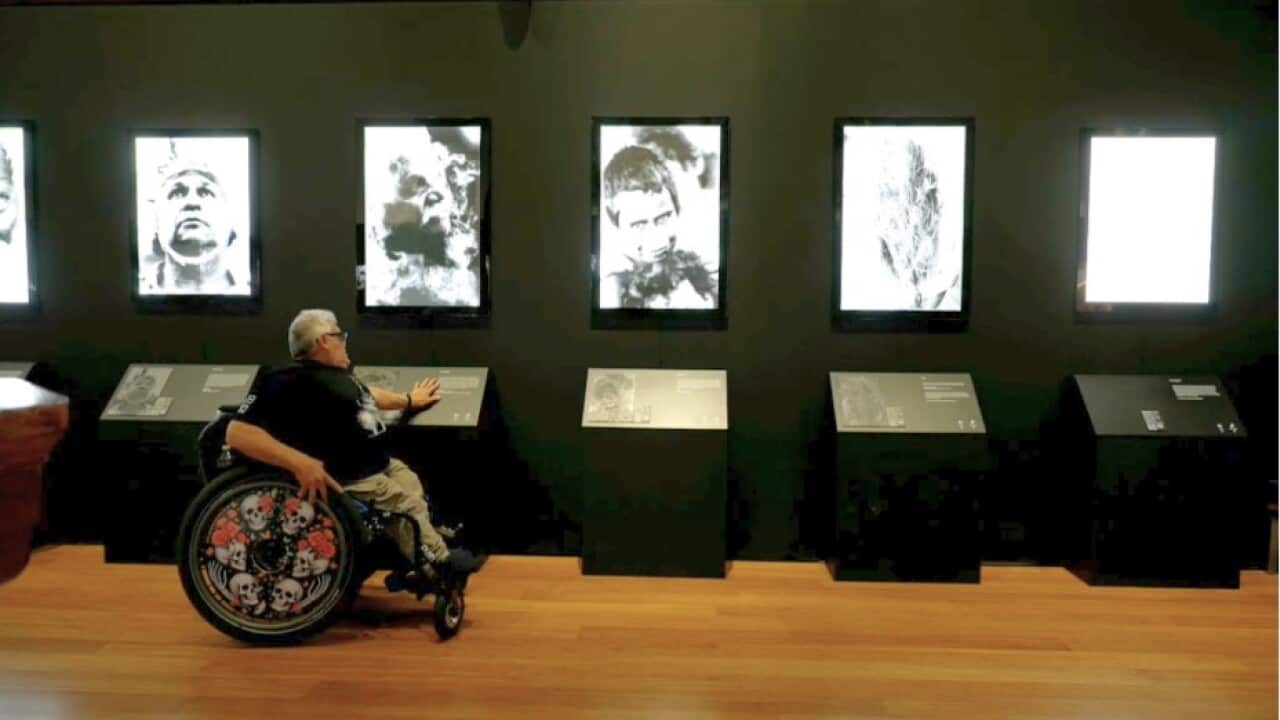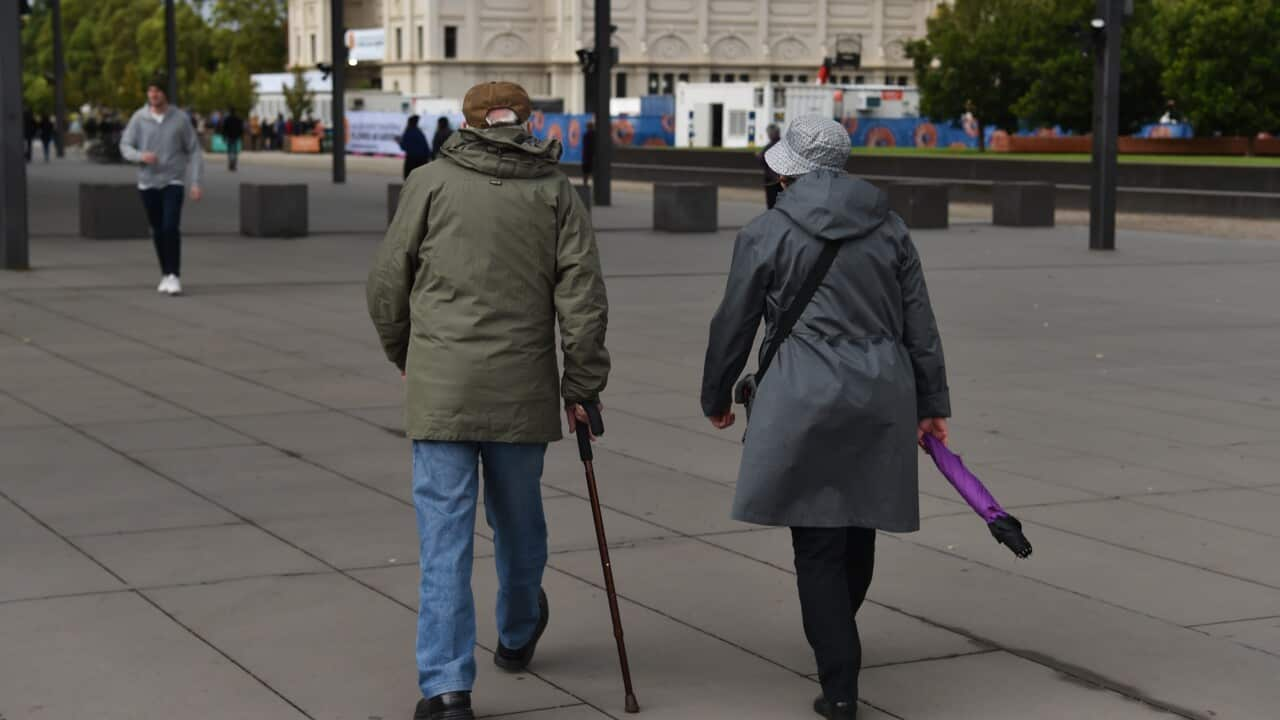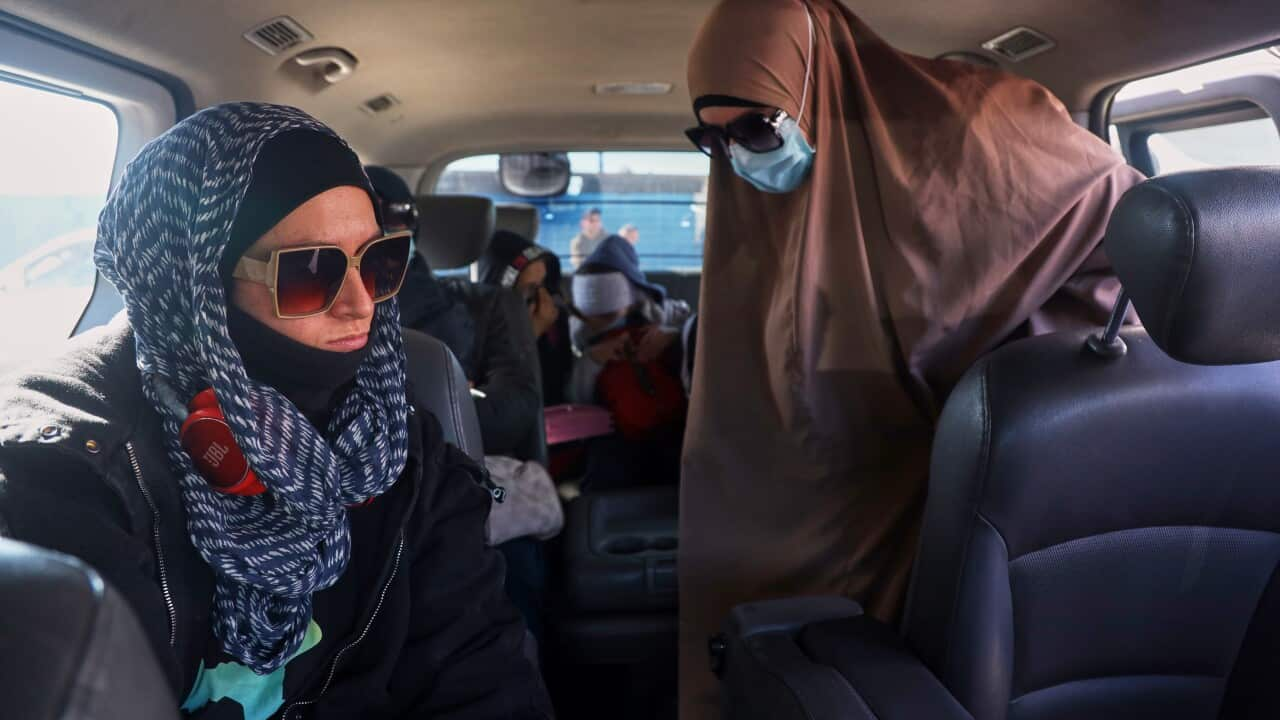Listen to Australian and world news, and follow trending topics with SBS News Podcasts.
TRANSCRIPT
The latest annual data is in - on the progress made in improving the lives of First Nations Australians across 19 indicators.
The fifth annual report released by the Productivity Commission shows only four of the targets are on track to be met, in the areas of preschool enrolment, employment, and land and water rights.
There has been improvement in six targets: including life expectancy, healthy birthweights, year 12 or equivalent qualifications, youth engagement, and appropriately sized housing.
Scott Wilson is the deputy co-convenor for the Coalition of the Peaks, representing 800 First Nations community groups.
"It means the governments sort of need to sort step up. They said they would. The Productivity Commission and the recent Indigenous-led review of the Close the Gap agenda basically all said the same things. That it is the community-controlled organisations that are doing all the heavy lifting. And governments are just sitting back sometimes and not sort of coming to the party. Or coming on that journey with us in the true spirit of partnership and the national agreement was about."
He says there has been a tremendous amount of work done over the last five years since a new national agreement was signed, allowing the Coalition of Peaks to co-design the Closing the Gap framework to turbocharge progress.
"It is a huge leap (to have Closing the Gap targets since 2008). In South Australia, up until just recently we didn't have an Aboriginal community controlled housing association. We have now just signed a five-year agreement with South Australian Housing Trust to establish one. The national agreement runs for another five years. The hope is that by the time we get to the end of those five years, Aboriginal people on community - urban, rural or regional - will now have services that did not exist before. Governments will have transformed how they fund Aboriginal programs and services to community controlled."
National, state and territory governments are all part of delivering the targets in the agreement - and elections that result in changed policies can stall and even reduce progress.
Mr Wilson says that is particularly the case with the return to so-called "get tough on crime" policies that increase Indigenous incarceration rates.
Despite representing just 3 per cent of Australia's population, First Nations Australians are over-represented in the prison system, accounting for an all-time high of 36 per cent of all adult prisoners.
Treasurer Jim Chalmers says there is room for the federal government to do better.
"We need to acknowledge when we see these numbers that even with all this good will, even with all these resources, we're not making enough progress. We're making some progress, but not enough progress. But from the government's point of view, we can always do more. And we can always do better."
The latest report shows the Northern Territory is the worst-performing jurisdiction.
It comes as the newly elected NT's Country Liberal government moves to reintroduce a range of tougher youth crime measures, including reinstating the use of spit hoods on young people in youth detention centres.
Indigenous rights advocate Thomas Mayo says the measure goes against the advice of experts - and is likely to cause further harm.
"The Northern Territory government elected last year are going backwards on this. They're working against the very commitments that they've made. They're ignoring the advice from experts and from community. And that key way of Closing the Gap just firstly be listening to the community and what they have got to say has been met with complete ignorance by the Northern Territory government. And this is something that we should all be concerned about.”
The Labor member for Lingiari, in the Northern Territory, Marion Scrymgour, broke down in tears during a condolence motion that was passed in the federal Senate chamber.
The motion paid tribute to the 17 Indigenous deaths in custody this year, including 24-year-old Walpiri man Kumanjayi White, who died in May after being restrained by officers at an Alice Springs supermarket.
"This issue weighs heavily on me. As an Aboriginal person from the Northern Territory, these deaths have been catastrophic for my communities. As a mother, as a grandmother, these deaths have weighed heavily on my communities."
There have been 602 deaths in the last 34 years since 1991 when the final report was released from the Royal Commission into Aboriginal Deaths in Custody outlining 339 recommendations.
The Productivity Commission's latest report comes on the eve of Australia's largest Indigenous gathering, the Garma Festival in the NT, in remote northeast Arnhem Land.
Prime Minister Anthony Albanese will be among political leaders attending, with Indigenous Affairs to be front and centre.
Denise Bowden is the chief executive of the Yothu Yindi Foundation, which hosts the Garma Festival - marking its 25th anniversary this year.
She says she hopes the event is a catalyst for change.
"So the theme this year is law of the land, standing firm. And it does really talk to what has been a long legacy peace of work for Yolngu people's rights to determine their own native title. It is a real empowerment story. A lot of people, a lot of our leaders in the past have fought for self-determination and really being able to empower ourselves for our fight for land rights. And this year's High Court win by the Gumatj people is an extraordinary win. It's unique."
The High Court in March ruled the Gumatj Clan was eligible for compensation for mining on their land decades ago.
The judgment has been described as one most significant tests of native title since the Mabo ruling in 1992.
